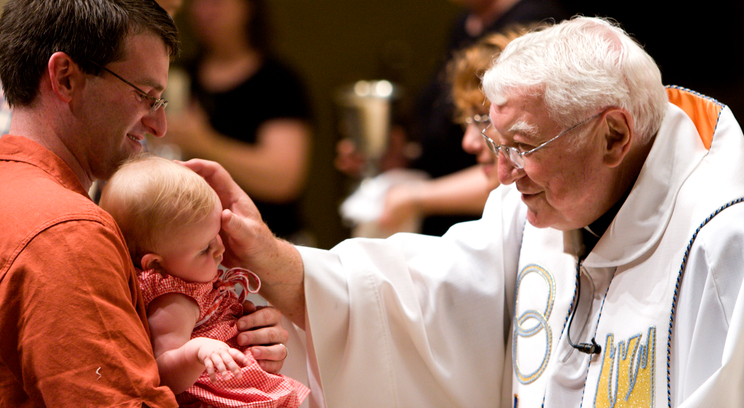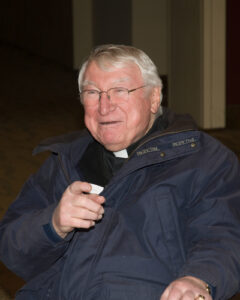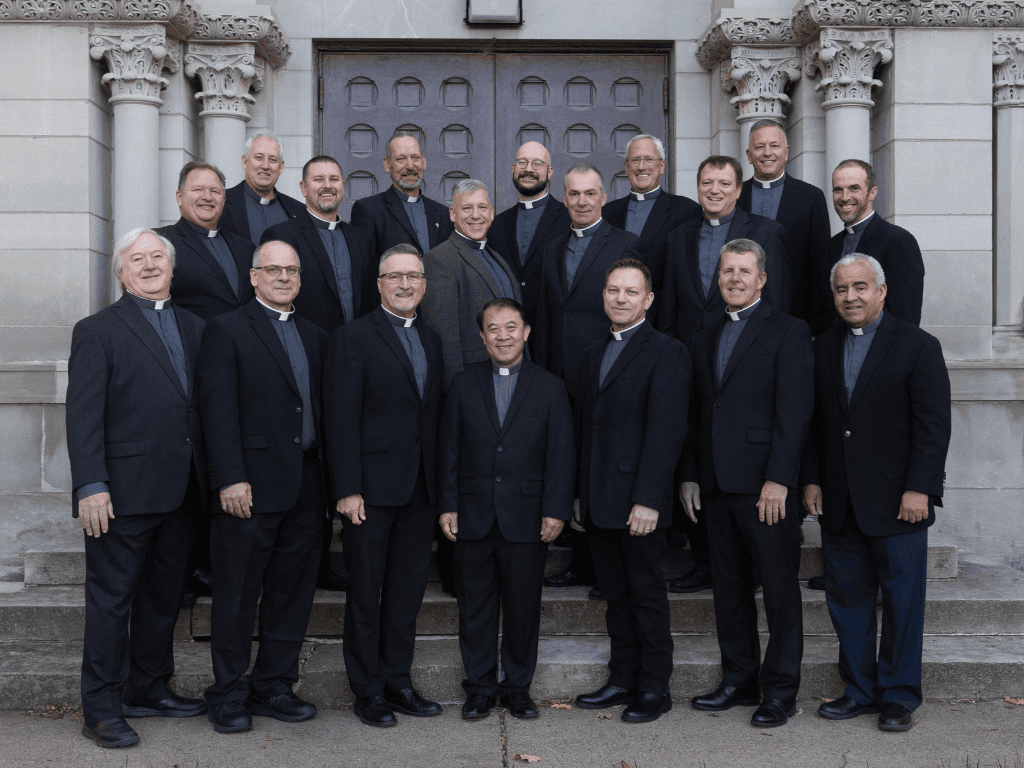Monsignor James Habiger, a champion of social justice issues in the Catholic Church and the retired executive director of the Minnesota Catholic Conference, died Tuesday. He was 85.
Habiger lived on St. Thomas’ St. Paul campus from 1980 until several weeks ago and had served as a pastoral associate in the St. Thomas Campus Ministry Office since 1995. He celebrated the 60th anniversary of his ordination last year.
A Mass of Christian Burial will be at 10:30 a.m. Monday, Oct. 15, in the Chapel of St. Thomas Aquinas, with visitation in the chapel at 9 a.m. There also will be a visitation from 1 to 5 p.m. Sunday, Oct. 14, at St. Peter’s Catholic Church in North St. Paul, with prayers at 4 p.m. Funeral guests can park in Lot A off Selby Avenue and Finn Avenue North.
To honor his parents, Habiger established the Joseph and Edith Habiger Institute for Catholic Leadership in the Center for Catholic Studies at St. Thomas several years ago to provide students with leadership formation opportunities. Another program, the Habiger Lecture Series, has brought lecturers, scholars-in-residence and artists-in-residence to St. Thomas every semester since 2000.
Known for his gregarious nature and hearty laugh, Habiger was a native of Harvey, N.D., and grew up in Owatonna, Minn. He earned a bachelor’s degree in philosophy from St. Mary’s Seminary and University in Baltimore and a master’s degree in education from Catholic University in Washington, D.C., and was ordained May 19, 1951.
He returned to Minnesota and served parishes in Austin, Winona and Rochester. He was high school principal at St. Augustine’s in Austin and at Winona Cotter before serving as superintendent of education for the Diocese of Winona from 1960 to 1976, when he became pastor of St. Francis of Assisi in Rochester.
In 1980, Habiger was named executive director of the Minnesota Catholic Conference and held the position for 15 years, representing bishops on social, legal and political issues and lobbying the legislature on their behalf. He also served as chaplain of the Minnesota House and Senate.
The late Archbishop John Roach of St. Paul and Minneapolis once said that Habiger’s “amazing person-to-person moxie” enabled him to become “a gracious persuader – thoughtful, bright and deeply committed to the Catholic social justice tradition.”
In response to criticism in 1986 from several legislators who wanted him to stop working against a bill to cut welfare benefits by 30 percent, Habiger defended his right to oppose efforts that would hurt vulnerable people. Within a week, the legislators apologized and the bill was defeated.
The Catholic Church has no interest in running the state, “but it is interested in how the state is run,” Habiger said at the time. “We’re not interested in legislating morality, but we’re interested in the morality of legislation. When we’re talking about morality, we’re talking about good and bad.”
Upon his retirement from the conference in 1995, Habiger received the John A. Ryan Award from St. Thomas for outstanding contributions toward social justice. He then served in Campus Ministry and assisted with liturgies on campus and in area parishes, most notably St. Peter’s in North St. Paul.
Habiger also was moderator of the Archdiocesan Council of Catholic Women for 20 years before stepping down in 2008.
Survivors include a sister, Jean Mathews; a sister-in-law, Lorraine Habiger; an uncle, Jerome Habiger; many nieces, nephews and cousins; and a family friend, Ruth Gaylord.
Memorials are preferred to two religious orders – the Sisters of St. Francis in Rochester and the Sisters of St. Joseph of Carondelet in St. Paul.








